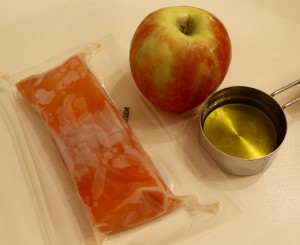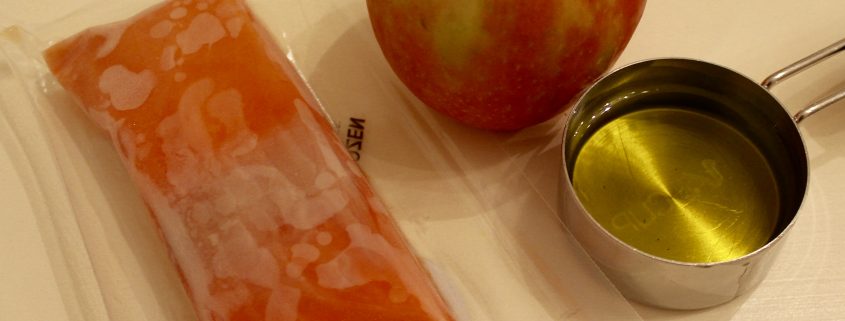I Have Rheumatoid Arthritis, Now What?
 Did you know that there are more than 100 types of arthritis, and it is the number one cause of disability in America? The most common form is osteoarthritis and the most severe form is rheumatoid arthritis (RA). Arthritis causes joint pain, swelling, stiffness and decreased range of motion.
Did you know that there are more than 100 types of arthritis, and it is the number one cause of disability in America? The most common form is osteoarthritis and the most severe form is rheumatoid arthritis (RA). Arthritis causes joint pain, swelling, stiffness and decreased range of motion.
As one of the most severe forms of arthritis, RA can cause chronic pain, an inability to do daily activities, and great difficulty walking or climbing stairs.
May is National Arthritis Awareness Month; let’s use this month to learn more about RA.
Rheumatoid Arthritis
RA is an autoimmune disease that affects your joints and can affect some of your internal organs. It is a symmetrical arthritis, meaning it occurs on both sides of your body. Symptoms of RA include mild to severe pain and swelling in the joints, which may come and go, fatigue, fever and weakness. Deformity is often a result.
RA is two to three times more common in females and usually strikes around middle age.
Treatment for RA includes the use of medications to control pain and swelling. But, can the foods you eat affect your symptoms? There is a lot of controversy around the topic, but we do know that eating a healthy diet is important for your overall health. Keeping your body well-nourished will keep your body strong.
Nutrition and Rheumatoid Arthritis
Research is being done to further define the relationship between nutrition and RA, but there are some nutrients we already know can have a positive effect on RA.
Nutrients that can help fight RA:
- Omega-3 fatty acids: Omega-3s, found in fatty fish, are an essential fatty acid with anti-inflammatory properties. Studies have shown fish oil can relieve tender joints and ease morning stiffness.
Omega-3 fatty acids can be found in cold-water fish including: herring, mackerel, trout, salmon and tuna. If you introduce two 4 ounce servings of fish a week into your diet, you may start to see the positive effects omega-3s can have on your RA symptoms.
It is always best to get your omega-3s from your diet, but if you choose to use supplements be aware that high doses may interact with certain drugs, including drugs for high blood pressure. Be sure to talk to your doctor about dosage and contraindications before beginning fish oil supplements (or any supplements for that matter).
- Dietary fiber: Fiber can help lower levels of C-reactive protein (CRP) in the blood. CRP is an indicator of inflammation in the body.
Fruits, vegetables and whole grains are high in fiber. A diet rich in fruit, vegetables and whole grains will improve your overall health, along with alleviating inflammation in your body.
- Extra-virgin olive oil: This type of olive oil is filled with monounsaturated fats that may help reduce inflammation. Extra-virgin olive oil may work in the same way nonsteroidal anti-inflammatory drugs do, such as ibuprofen or aspirin, because it contains a compound that blocks the enzymes that cause inflammation.
Extra-virgin olive oil should not be used in place of any ibuprofen or aspirin you take. Instead, use this oil when cooking, in place of butter or other oils you may currently use.
What about nightshade foods?
Nightshade foods include: potatoes, tomatoes, eggplants and sweet and hot peppers.
Do you associate these foods with your inflammation?
Some people believe they may have a sensitivity to them, which may increase the inflammation in their body and affect their symptoms. This is common among RA patients because symptoms come and go, and it is easy to associate a food with them.
Nightshade recommendations:
There are mixed recommendations regarding these foods. Some say to avoid them, while others say they are OK to have. Currently there is no evidence that proves removing nightshade foods can relieve your symptoms. But, be aware that if you choose to eliminate this entire group of food, you may miss certain essential nutrients.
Meal Preparation Tips
RA can make it difficult to prepare your meals. This can lead to unexpected weight loss or nutrient deficiencies. Here are some tips to help you when preparing food:
- When cooking dinner, make extra so you can have leftovers for another night. This can come in handy when you might be in pain or tired and don’t want to cook.
- Rely on prewashed, precut and packaged fruits and vegetables to reduce the amount of time it takes to prepare a meal.
- Canned vegetables and beans can be a good option. Be sure to buy low-sodium options and rinse before cooking.
Exercise and Rheumatoid Arthritis
It is important to incorporate exercise into your daily routine. Exercise can help your RA because it strengthens the muscles around the joints and improves energy.
- Swimming, water aerobics, and walking are recommended and can be very beneficial.
- If you are experiencing an acute flare-up, you may need to avoid exercise. Talk with your doctor to further discuss what your body can handle.
It is important to note that there is no evidence to show that anything you eat will stop your RA from getting worse.
Source: http://www.arthritis.org/living-with-arthritis/arthritis-diet/anti-inflammatory/rheumatoid-arthritis-diet.php


Leave a Reply
Want to join the discussion?Feel free to contribute!